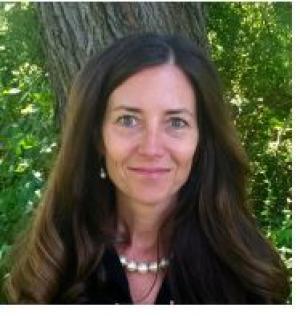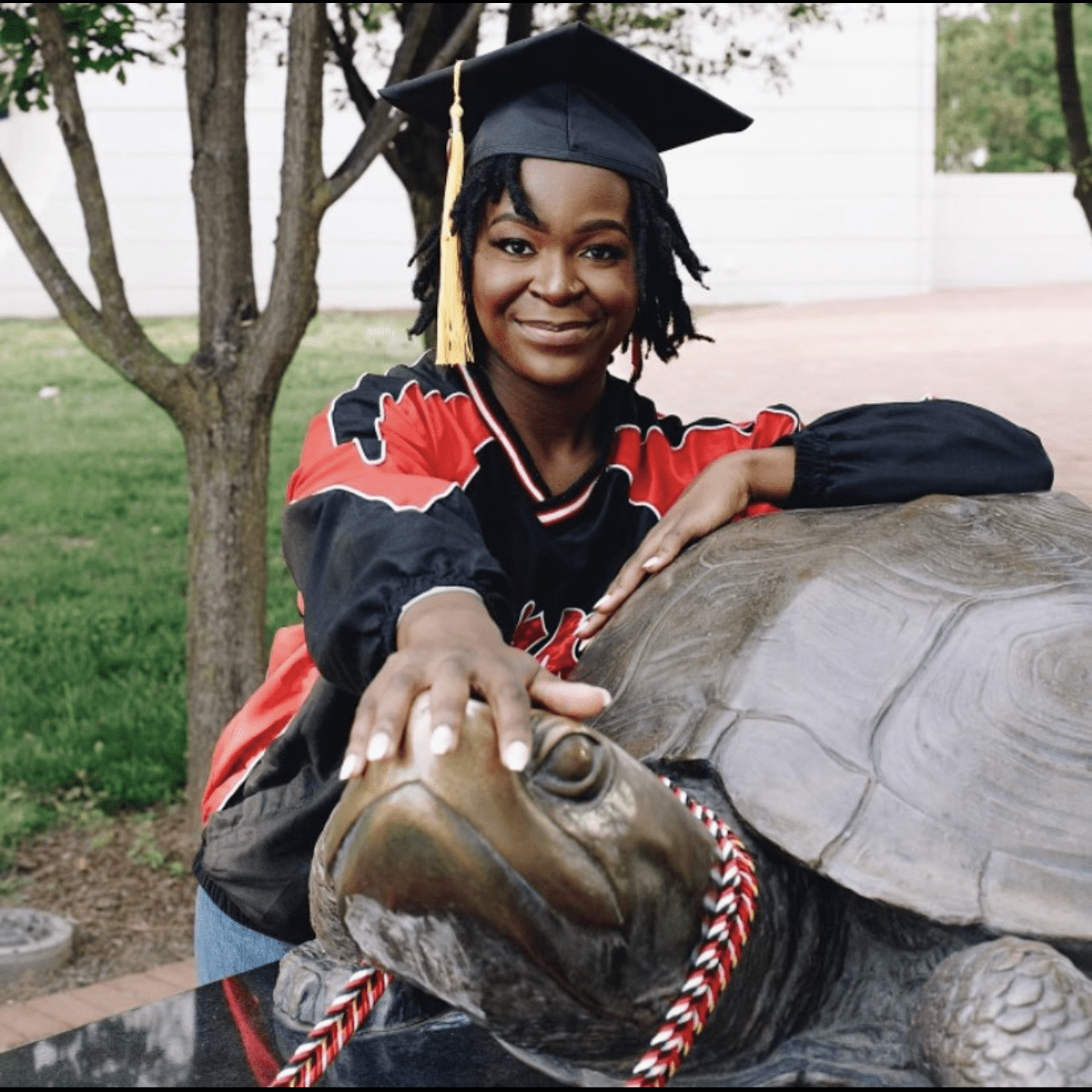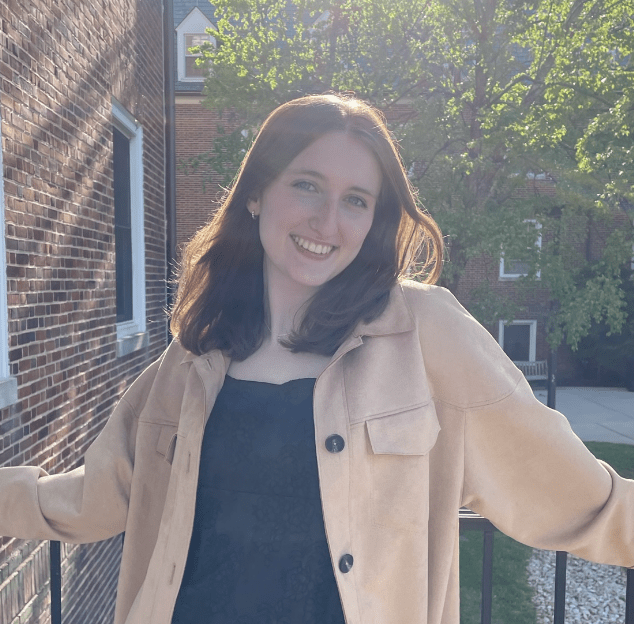Civic Engagement for Social Good
Inspiring community collaboration and meaningful change
Introduction
The world critically needs changemakers committed to understanding social issues and collaborating alongside their communities to foster meaningful change. In Civic Engagement for Social Good (CESG), previously known as CIVICUS, students work with organizations addressing a range of societal challenges, including poverty, food insecurity, housing insecurity, child welfare, education, political activism, animal rights, and the environment. Students explore:
- Issues impacting local communities
- Organizations that are addressing pressing social issues
- Ways to engage in hands-on work in civic engagement
- Strategies for deliberative dialogue in a multicultural world
- Methods to leverage their strengths to make sustainable change
CESG coursework and community engagement activities operate in tandem, creating a synergy that enhances the overall student experience. Coursework provides an opportunity for students to explore the root causes of social needs and strategies for addressing social concerns that they see during their work in the community, while service projects and co-curricular activities create an environment for students to implement what they learn in the classroom.
As an interdisciplinary program, CESG students represent a wide range of academic interests and majors. Civic Engagement for Social Good encourages students to ground their work in their passions, academic majors, and professional interests.
Through their shared passion for social good and engagement in co-curricular activities, CESG students form a close cohort who develop strong friendships and support each other throughout their time at UMD.
Colloquium and Lecture Topics
- The complexities and the structures that cause social issues
- Concepts related to the theories and practices of civic engagement
- Models for working towards positive social change
- Ways to engage in difficult conversations with empathy around differences of perspective, beliefs, and identities
[This program] has made me a kinder, more compassionate, more informed person. [It] gave me the opportunity to get my hands dirty, to engage in the community in ways I never thought I could. [It] has taught me that it takes a village but also that I can make tremendous change myself..providing me with more opportunities for learning and character-building than I would've gotten in any other program or club.
Other Learning Opportunities
Students are actively engaged in UMD, College Park and surrounding areas, and Washington, DC annually completing over 1,000 hours of volunteer work. Students can choose from over 100 projects per year with a wide array of partner organizations.
Students:
- Participate in civic engagement projects. Recently, students have acted as mentors for local elementary students, planted trees to increase the canopy in Washington, DC, served meals from a mobile soup kitchen, handled dogs at a humane rescue adoption event, canvassed on behalf of political candidates, and captioned videos to ensure accessibility for a wider community.
- Take trips to Washington DC and the surrounding area where they participate in scavenger hunts, visit memorials, monuments, and museums, and attend baseball games, cultural heritage events, and the performing arts.
- Meet guest speakers, including politicians, staff members from local non-profit organizations, and local community leaders and activists
- Participate in community-building activities, such as challenge courses, trivia nights, bingo, BBQs, and study breaks
CESG staff provide the planning, logistical support, and transportation for most activities. All second-year students also participate in a capstone experience for academic credit. The capstone can include an internship, extensive work with a non-profit, or affiliated experiential learning courses. Students in the past have held internships in local and national politics, non-profits, high-profile media outlets, medical facilities, research labs, mentoring organizations, and peer dialogue training. The capstone gives students authentic experiences and skills that help support their academic work, career goals, and future community engagement efforts.
Curriculum Overview
Over the two-year program (four semesters), students complete 12-credit hours that count toward their CESG Scholars citation. The following table represents a typical two-year curriculum. Details about courses and requirements can be found on the CESG Citation Checklist
| SEMESTER | COURSE | CREDITS |
|---|---|---|
| Semester 1 | CPCV 100: Colloquium I | 1 credit |
| CPCV 225: Intro to Civic Engagement for Social Good | 3 credits | |
| Semester 2 | CPCV 101: Colloquium II | 1 credit |
| Semester 3 | CHSE 328C: Intergroup Dialogue (DVCC) | 1 credit |
| Semester 4 | CPCV 230: Internship; or CPCV 240: Service-Learning; or CPCV 250: Research; or |
3 credits 3 credits 3 credits |
| Semester 1, 2, 3, or 4 | Supporting Course (var. Gen Ed) | 3 credits |
Sponsoring College
Office Address
1103 Centerville Hall
Office Email
Faculty


Deborah Omotoso

News and Notes, Etc.
Civic Engagement for Social Good News
Paper Co-Authored by STS Undergrads Receives Best Paper Recognition at National Conference
During Sona Chudamani’s first year at the University of Maryland, she volunteered to be a subject for a research project. Her reason? “I didn’t have much to do during my freshman year, especially with everything being online,” she says.
Scholars recognizes Citation Class of 2022, Founders Circle Award winners
Students in College Park Scholars’s Citation Class of 2022 began their University of Maryland (UMD) careers in the fall of 2020, under the shadow of the COVID-19 pandemic. They spent their first year almost entirely online: Some Zoomed into their program colloquium from their double-turned-single dorm rooms; others attended virtually from their families’ homes, away from campus.
2 Scholars alums named Merrill Presidential Scholars
Two Scholars alumni were among the 19 graduating seniors named this year’s Philip Merrill Presidential Scholars. The program recognizes the University of Maryland’s most successful seniors—as chosen by their academic colleges—and additionally honors the university faculty and K–12 teachers they cite for their mentorship. The two alums were: Alexia Ayuk, Business, Society and the Economy Katelyn Wang, Environment, Technology and Economy
UMD Grant Initiative Bolsters Scholars Curricula With Additional Experiential Learning
Hands-on, active learning has always been a hallmark of College Park Scholars. Thanks to new grants from the University of Maryland (UMD), some Scholars programs will expand upon those traditions with more resources and support. The grants come from UMD’s campuswide Teaching and Learning Innovation Grants initiative, which is providing significant funds—up to tens of thousands of dollars in some cases—for innovative educational projects that focus on active and experiential learning.
7 Ways You Can Make a Difference on Climate Change
The following article originally appeared in Maryland Today: Hundred-year floods occurring every few years. Record-breaking heatwaves buckling roads and withering harvests. Prolonged drought causing frequent wildfires. These days, it’s not hard to find dramatic examples of weather-driven disasters made worse by climate change. It’s also too easy to feel defeated by the magnitude of the problem.
4 Scholars Among the Freshman Cohort Spotlighted in Maryland Today
College Park Scholars students are an impressive bunch, and this year's entering cohort is no exception. Four Scholars students were among the handful of first-year Terps profiled in today's issue of "Maryland Today," the University of Maryland's daily newsletter: Marcus Barros, Public Leadership Aidan Borden, Media, Self and Society Shonchori Mukherjee, International Studies Sayee Naresh, Media, Self and Society


